Last updated on April 21st, 2024
Featured image: The Argyle Historic Church is an example of where events are staged by volunteers – those ‘heavenly invisibles’ who make our travels possible and are the backbones of our communities | Photo by Sandra Phinney
What I learned travelling at home for 30 days
by Sandra Phinney
In my first column on slow travel at home, I referred to Mary Oliver’s quote from Our World about finding the ‘heavenly invisibles in the heavenly visibles.’
I continue to be amazed at how volunteers play such an enormous role in the world. Yet, they are often invisible. So many things in our travels—museums, libraries, tours, concerts, beautiful parks and trails, art galleries, community meals—are often the visible parts of those heavenly invisibles. But what goes on behind the scenes? Who raises the funds to keep places open? How many people are involved that are not on a payroll? It’s worth taking the time to talk with the locals and learn the backstories of how volunteers are the backbone of our communities, especially in small towns and villages.
Let me illustrate what I mean by recounting a handful of things I did during my 30-day slow travel jaunt while getting up close and personal with nearby towns and villages.
Travel-at-home experiences made possible by volunteers
An afternoon concert at the Argyle Historic Church
During the first couple of days of my July Project, I attended an afternoon concert at the Argyle Historic Church. Walking up the stairs of the church a tad late, I could hear a classical strain from Bach’s Quintet in C Major Op. 11 No. 1. Mind you, before reading the program, didn’t know the exact title, but I did recognize it as a composition from Johann Christian Bach and not the score from a Dr. Seuss movie.
The Argyle Lodge Chamber Players, led by Randy Hiller, were in fine form. Randy hails from Massachusetts in the U.S. and performs with Emmanuel Music, Cantata Singers, and the Lexington Symphony. Several years ago, he and his wife bought an old hunting lodge in Argyle, Nova Scotia, which has become a summer refuge for them and their musical friends. Now, Randy and his guests give a concert every summer, and the proceeds are donated to the Argyle Historic Church Committee to help with restoration and preservation. Dozens of other volunteers organize the event and provide refreshments, keep the grounds spiffy, and do restoration work.
After the concert, I strolled around the old cemetery and learned that Caleb Slocum (1788-1863) is buried here. Caleb was an uncle to Joshua Slocum, the first man to sail alone around the world! I later learned that Joshua Slocum actually spent time in my hometown of Yarmouth before setting sail on his epic journey. In Sailing Alone Around the World, he wrote about buying his “famous tin clock,” in Yarmouth, “… the only time piece I carried on the whole voyage. The price was a dollar and a half but on account of the face being smashed the merchant let me have it for a dollar.”
Three weeks later, I attended a concert in the coastal community of Port Maitland. A news release said in part, “Boxwood programs combine originality, intelligence, fun, and sheer mastery that have garnered respect from audiences, presenters, and colleagues alike in North America, Europe, and Asia.” They certainly delivered.
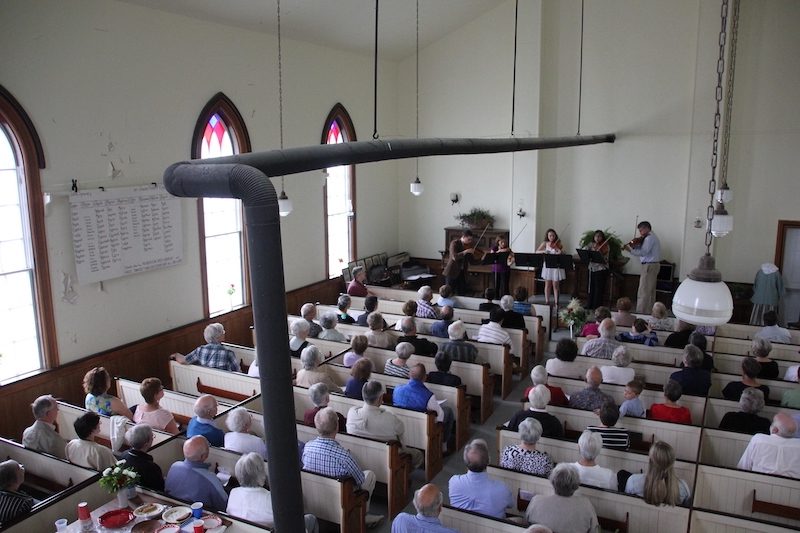
The Argyle Historic Church fills every summer when the Argyle Lodge Chamber Players (all volunteers!) share their love of music / Photo by Sandra Phinney
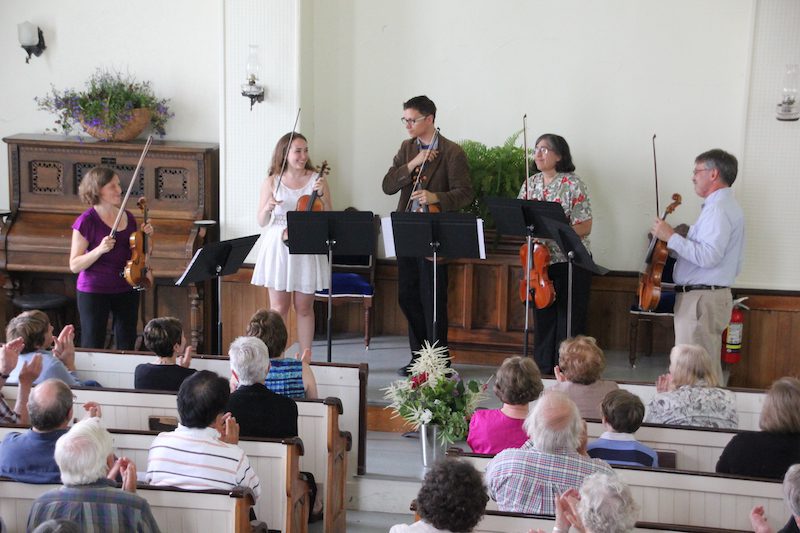
The Argyle Lodge Chamber Players during their concert / Photo by Sandra Phinney
A Performance by Boxwood Musicians
I heard everything from Celtic music to Baroque, Appalachian, and Klezmer. Within seconds of the opening number, I wanted to get up and dance. I was also in awe that a small rural community like Port Maitland (population fewer than 500) could host world-class performances like this. It’s all thanks to a local volunteer group called the Hear! Here! Society, who spearheaded efforts to bring top-notch performers to rural communities in my province.
Mind you, not all concerts are world-class. One day, I read on a poster in a local grocery store heralding a Gospel Concert at the local Salvation Army Church in town that very night. A few performers had gorgeous voices, although some were more like mine, meaning that their singing was not what you’d classify as “concert quality.” Yet, despite the sweltering heat, they opened their hearts, belted out their songs, and were braver in public than I would ever be. I remember sitting in a pew, feeling grateful for this congregation and their gift of music.
Just before the gospel concert, I attended a bean supper in Sandford, a neighbouring community. I’m fussy about my baked beans because I’ve been perfecting a recipe for many years and am leery of anything that smacks of the canned variety. Usually, brown bread accompanies the beans, and we all know how quality varies. The beans were robust, flavourful, and not too sweet, while the brown bread was Grandma’s best porridge bread. The funds raised from this supper were earmarked for helping a group of volunteers from my hometown go to New York, where they would help feed hundreds of people at the Bowery Mission in Manhattan, a landmark institution that’s been caring for the homeless and hungry since 1870. I also had time to talk with a couple of the servers and learn about their volunteer work at home and further afield. Such big hearts!
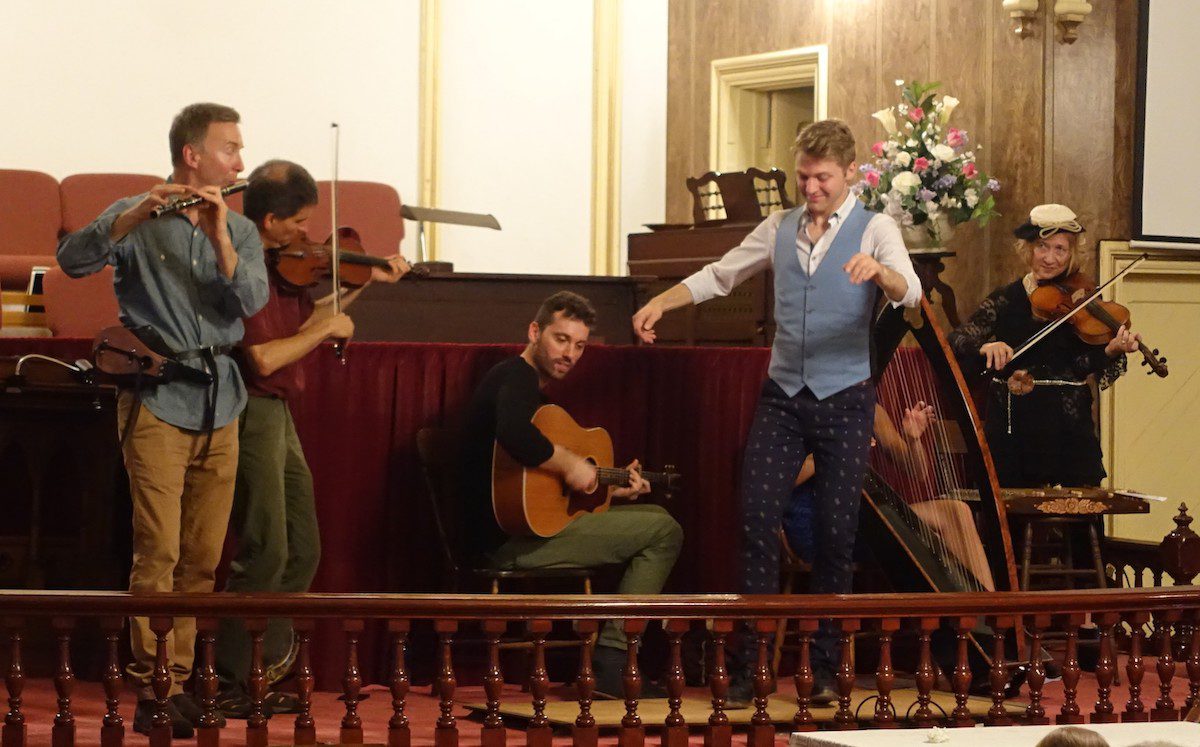
Boxwood, an internationally recognized group of musicians (and a tap dancer!) performs to a full house in a rural church in Port Maitland / Photo by Sandra Phinney
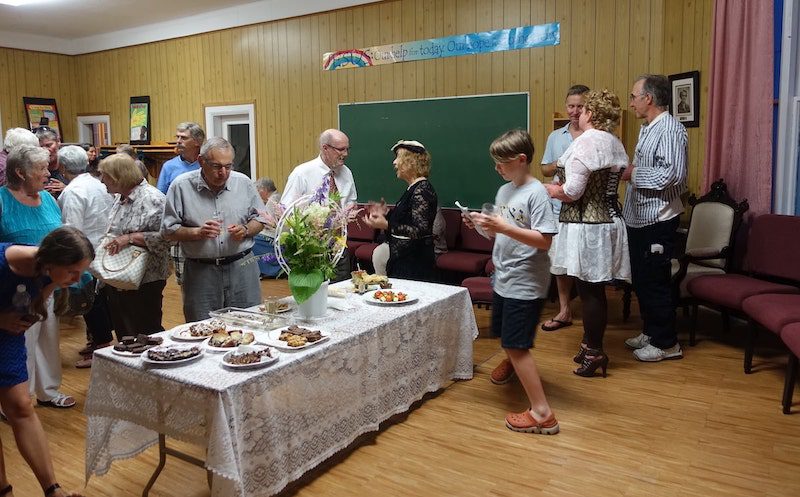
A reception for the musicians and concert goers is hosted by volunteers after the performance / Photo by Sandra Phinney
The Sandford Drawbridge
Bonus: a couple of kilometres from the hall is the Sandford Drawbridge, reported to be the smallest wooden—and still working—drawbridge in the world. Imagine that.
Of course, I visited lots of local museums, including the Shag Harbour UFO Incident Interpretive Centre. That’s a mouthful. If you’re skeptical about UFOs, you must visit.
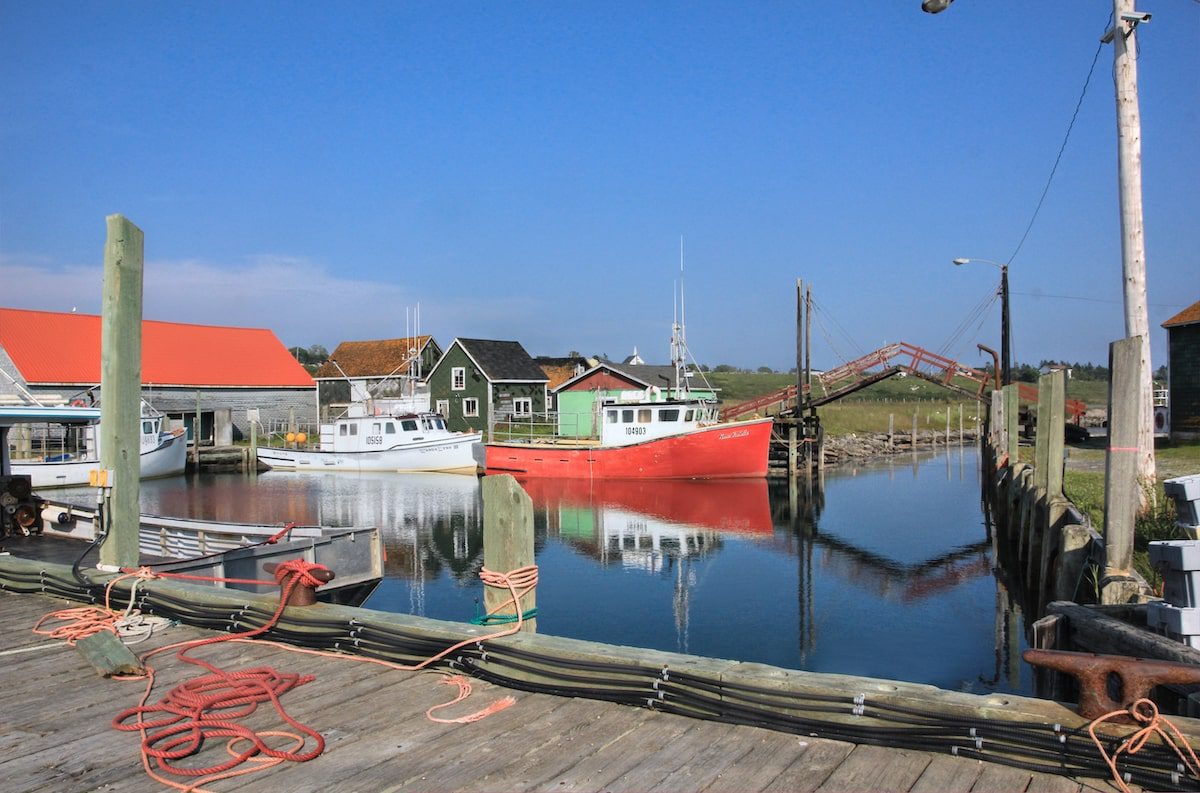
The Sandford Drawbridge always provides a great photo op / Photo by Sandra Phinney
The UFO Museum
It’s a compelling tale about UFOs that hovered over the bay and slipped into the water in 1967. Both civilians and the military have documented these events.
Books have been written on the topic and put Shag Harbour on the map. Volunteers keep the centre going and host a yearly UFO Festival. At the local post office, you can mail a postcard with a Shag Harbour UFO cancellation stamp.
And so it goes.
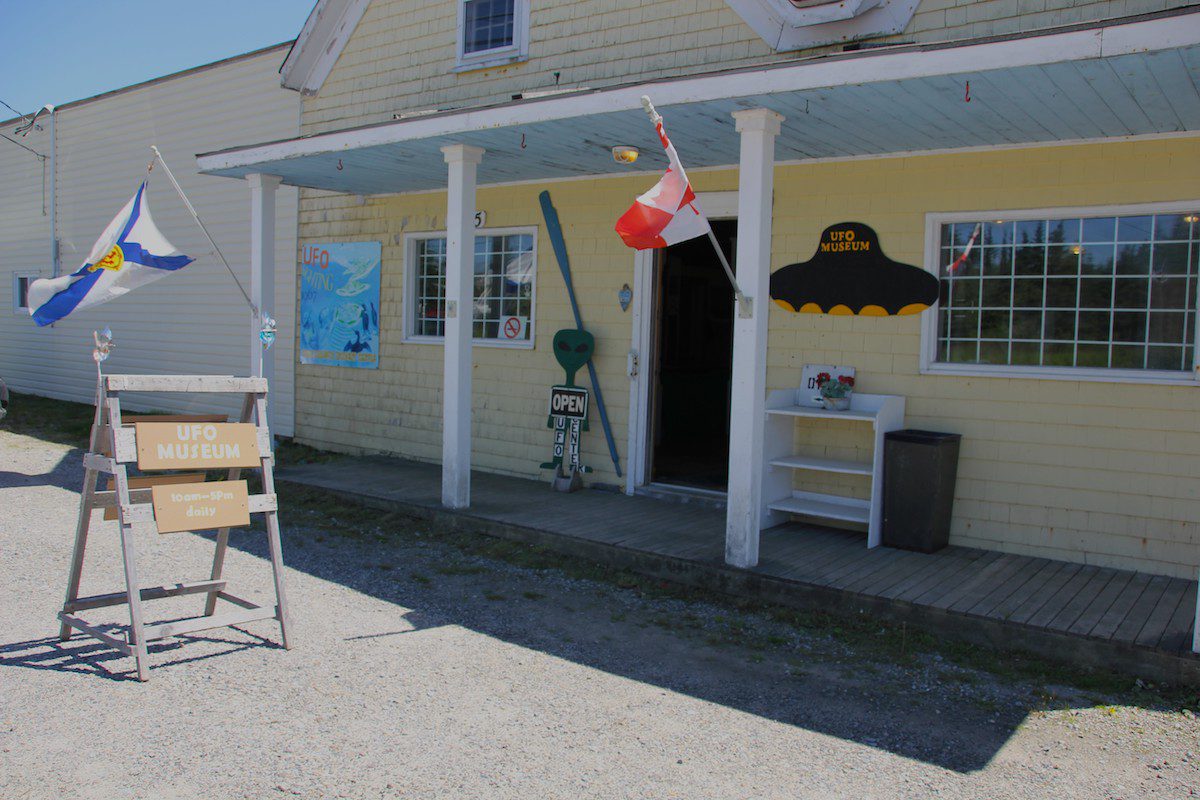
The UFO Museum in Shag Harbour / Photo by Sandra Phinney
The Genuine Progress Index
I once read about the Genuine Progress Index (GPI). The GPI measures social, economic, and environmental assets using tools that weigh the costs and benefits of what’s being measured. It gives the full picture.
It’s also known as “full-cost accounting” and differs from the Gross Domestic Product (GDP) that governments usually use to measure economic progress. In a nutshell, the GDP factors in goods and services that are exchanged for money during specific time frames. The only indicator of growth is money spent. The more we spend, the more the GDP increases. It matters not if vast chunks of money are spent on fossil fuels, war, smoking, car accidents, and depleting our forests and fish stocks … the GDP just goes higher and higher.
What Really Counts
In sharp contrast, the Genuine Progress Index or GPI factors in things such as unpaid labour, volunteerism, and more. I highly recommend reading Ron Colman’s book, What Really Counts ~ The Case for a Sustainable and Equitable Economy. I’ll refrain from going on and on, but my point is this: volunteers are part of the fabric that binds us together—the warp and woof of civilization. Thumbs up to these unsung heroes and heroines!
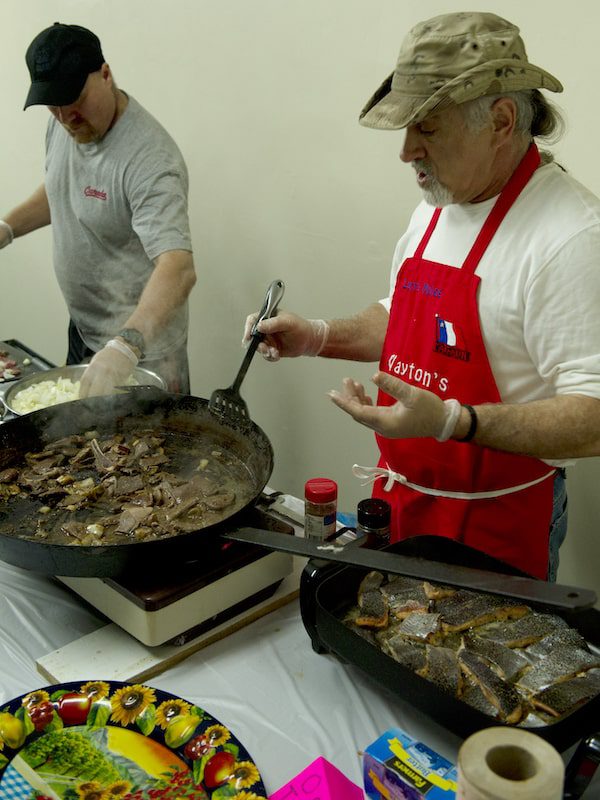
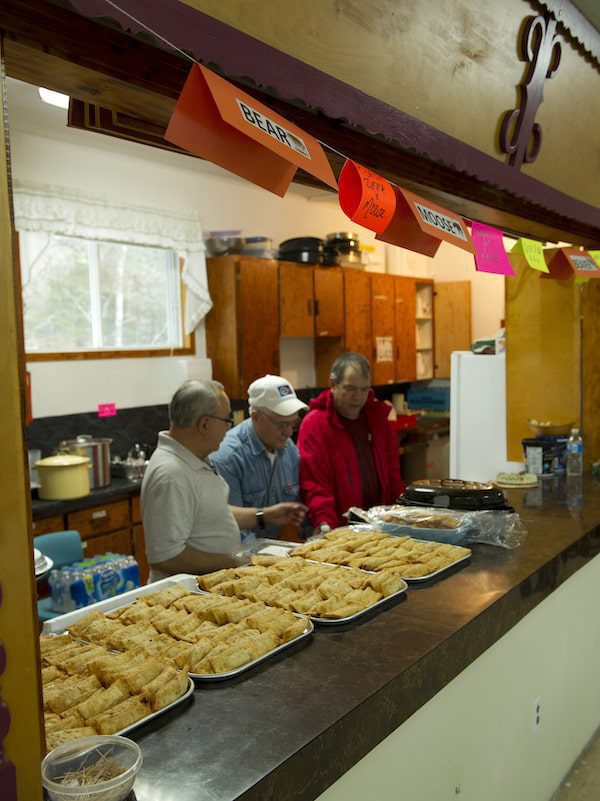
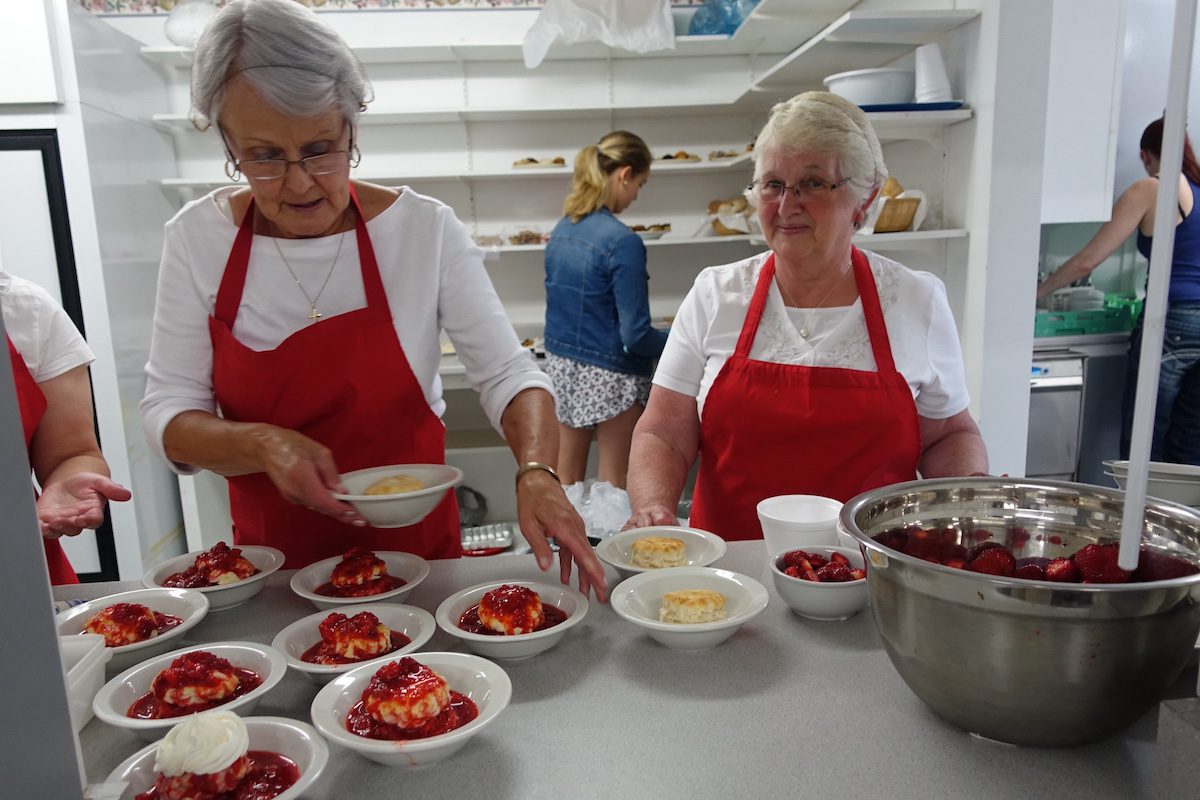
Community suppers involve armies of volunteers who produce the food, serve it, and clean up afterwards! / Photos by Sandra Phinney
How to find the heavenly visibles (volunteers) in your travels
- Check out local papers for community events.
- Look for posters about what’s happening, often taped to windows or on bulletin boards as you enter stores, post offices, and gas stations.
- Google a town, village, or community and check “event” listings. Do the same with Facebook and other social media.
- Strike up a conversation with a stranger. It could be in a cab, at a café, with a person at the checkout. Ask about the region and what’s going on.
- Mingle with the locals. Farmer’s markets are great places to meet people. Also, consider going to fishing wharves in coastal communities, Legions, and community halls. Locals love to chat and share what’s going on.
Read More From Sandra Phinney
Meeting a Legendary Heroine, Elder Tshaukuesh Elizabeth Penashue, in the Big Land—Labrador, Canada
Sandra Phinney recounts her experience with Tshaukuesh Elder Elizabeth Penashue while learning about the land in Labrador, Canada.
Going Psycho: Lessons from My Travels at Home
Inspired by the idea of ‘psychogeography, when we take time to slow down and experience things, we can discover extraordinary things close to home.
The July Project: Learning About Travel at Home in Nova Scotia
For the past eight years, Sandra Phinney has been thinking about—and trying to put into practice—what she’s learned about slow travel at home.

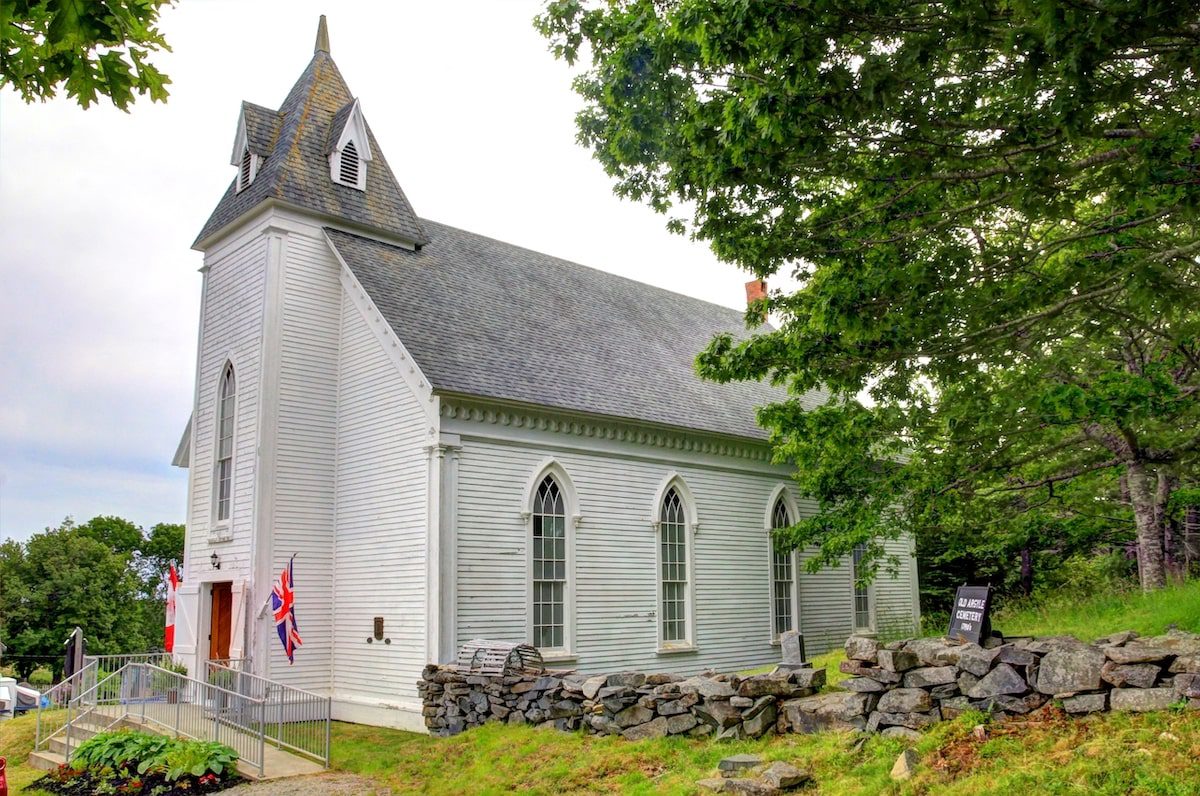



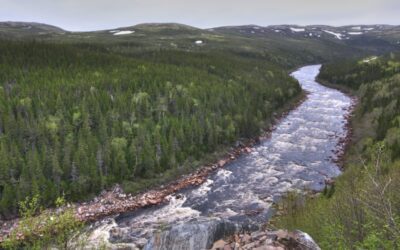

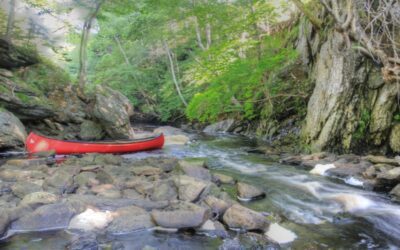
0 Comments
We always strive to use real photos from our own adventures, provided by the guest writer or from our personal travels. However, in some cases, due to photo quality, we must use stock photography. If you have any questions about the photography please let us know.
Disclaimer: We are so happy that you are checking out this page right now! We only recommend things that are suggested by our community, or through our own experience, that we believe will be helpful and practical for you. Some of our pages contain links, which means we’re part of an affiliate program for the product being mentioned. Should you decide to purchase a product using a link from on our site, JourneyWoman may earn a small commission from the retailer, which helps us maintain our beautiful website. JourneyWoman is an Amazon Associate and earns from qualifying purchases. Thank you!
We want to hear what you think about this article, and we welcome any updates or changes to improve it. You can comment below, or send an email to us at [email protected].